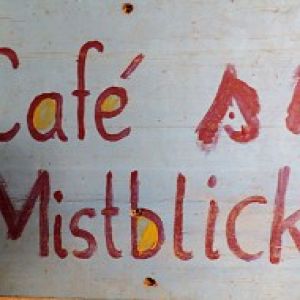On Doctor's Order
No, not enemas for each of the bees but HCO2H treatment better known as Formic Acid used to try and control the Varroa Destructor mite, the plague of most apiarists since hitting Europe in the early 1980's and the UK in 1992. Australia is thought to be one of the last countries free of it.
The Varroa mite attaches itself to the bees and weakens it and potentially will kill a whole colony. There are 101 thoughts on what if anything should be done but certainly in the "classic" bee keeping world, one undertakes a number of treatments throughout the year except during the honey harvest time.
This year has been very bad for me. My one colony that survived the winter was doing well in early spring and I even got one harvest. Then the swarm "plaque" that seemed to anger all beekeepers this year resulted in 50% of my bees leaving. Out of this 50% I then made 3 hives, i.e. I had 3 colonies with about 16% of a normal population in each, much too small to hope for any more honey.
The weather also caused unusual hardships, the honey dew season didn't really happen with the cold wet late summer. So not a vintage year for me.
HOWEVER thanks to MrB who gave me an "offspring" colony (a colony which had swarmed out from his hives and which he had been able to catch) and they did very well and have built up to be a good strong colony and stand a good chance of surviving the winter. One of my own also looked good but I was a bit worried about the other two.
Today MrB came over to inspect - he was much more optimistic about the two smaller colonies and gthought that with good "artificial" sugar paste feeding they should be fit by the time winter comes, adding however he had heard it was going to be a hard winter this year!
Not only does one need to ensure they have food for the winter but also try to reduce the number of these wretched mites. I am actually a bit late doing it and the current weather connditions are less than ideal but there is no sight of better weather to come for at least the next 2 weeks.
MrB or in this case DrB gave me all the instructions as to what to do above all safety rules: gloves, protective glasses and loads of water to wash away any splashes. The 60% Formic acid (the stuff ants sting you with) needs to be treated with great care. There are other safer chemicals but mainly synthetic, something we want to avoid. We also use lactic acid (C3H6O3) later in the year.
As evening approached and the girls all flew home, gave them a really good "smoke" to push then downwards between the frames, put the kitchen sponges directly on top of the frames, squirted the acid (around 20ml) on them and then quickly closed the boxes for the acid to vaporise in the hive over the coming 24 hours or so. Apparently the bees while not liking the smell, survive the shock treatment but the mites don't.
More to follow.....
- 0
- 0
- Nikon COOLPIX P520
- 1/50
- f/3.0
- 4mm
- 80

Comments
Sign in or get an account to comment.


